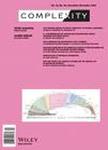版权所有:内蒙古大学图书馆 技术提供:维普资讯• 智图
内蒙古自治区呼和浩特市赛罕区大学西街235号 邮编: 010021
T=题名(书名、题名),A=作者(责任者),K=主题词,P=出版物名称,PU=出版社名称,O=机构(作者单位、学位授予单位、专利申请人),L=中图分类号,C=学科分类号,U=全部字段,Y=年(出版发行年、学位年度、标准发布年)
AND代表“并且”;OR代表“或者”;NOT代表“不包含”;(注意必须大写,运算符两边需空一格)
范例一:(K=图书馆学 OR K=情报学) AND A=范并思 AND Y=1982-2016
范例二:P=计算机应用与软件 AND (U=C++ OR U=Basic) NOT K=Visual AND Y=2011-2016

In this paper we consider a class of -minimization and wavelet frame-based models for image deblurring and denoising. Mathematically, they can be formulated as minimizing the sum of a data fidelity term and the l0-'norm' of the framelet coefficients of the underlying image, and we are particularly interested in three different types of data fidelity forms for image restoration problems. We first study the first-order optimality conditions for these models. We then propose a penalty decomposition (PD) method for solving these problems in which a sequence of penalty subproblems are solved by a block coordinate descent (BCD) method. Under some suitable assumptions, we establish that any accumulation point of the sequence generated by the PD method satisfies the first-order optimality conditions of these problems. Moreover, for the problems in which the data fidelity term is convex, we show that such an accumulation point is a local minimizer of the problems. In addition, we show that any accumulation point of the sequence generated by the BCD method is a block coordinate minimizer of the penalty subproblem. Furthermore, under some convexity assumptions on the data fidelity term, we prove that such an accumulation point is a local minimizer of the penalty subproblem. Numerical simulations show that the proposed
-minimization methods enjoy great potential for image deblurring and denoising in terms of solution quality and/or speed.


电话和邮箱必须正确填写,我们会与您联系确认。
版权所有:内蒙古大学图书馆 技术提供:维普资讯• 智图
内蒙古自治区呼和浩特市赛罕区大学西街235号 邮编: 010021

暂无评论